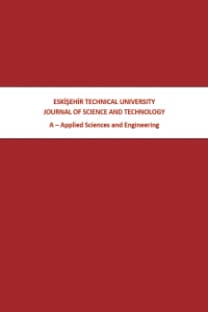PARAMETRIC STUDY OF ENERGY, EXERGY AND THERMOECONOMIC ANALYSES ON VAPOR-COMPRESSION SYSTEM CASCADED WITH LIBR/WATER AND NH3/WATER ABSORBTION CASCADE REFRIGERATION CYCLE
Energy savings on cooling systems can be performed by using novel refrigeration cycles. For this aim, vapour compression-vapour absorption cascade refrigeration systems can be considered as substitute to single-stage vapour compression refrigeration systems. Renewable energy sources of geothermal and solar heat, waste heat of processes have been used by these cycles to provide cooling and they also require less electrical energy than vapour compression cycles having alternative refrigerants. In this study, a vapour compression (VC) and vapour absorption (VA) cascade systems are analysed with the second law analysis for varied cooling capacities. While lithium bromide-water and NH3/H2O are the working fluids in VA part, various refrigerants are used in VC section. The refrigerants of R134a and R600a, R410A and R407C are tested as drop in alternatives for R12 and R22, respectively. The effects of alteration in cooling capacity, superheating and sub cooling in VC part, temperature in the generator and absorber, and degree of overlap in cascade condenser in VA part on the coefficient of system performance are studied. Validation of the results have been performed by the values given in the literature. Improvement in COP of VC, VA and cascade system are obtained separately. According to the analyses, cascade systems’ COP values increase with increasing the temperatures of generator and evaporator and they also increase with decreasing the condenser and absorber temperatures. Moreover, the generator has the highest exergy destruction rates, second and third one were the condenser and absorber, respectively. Electricity consumption and payback period are also determined considering the various parameters of the study.
- ISSN: 2667-4211
- Yayın Aralığı: Yılda 4 Sayı
- Başlangıç: 2000
- Yayıncı: Eskişehir Teknik Üniversitesi
